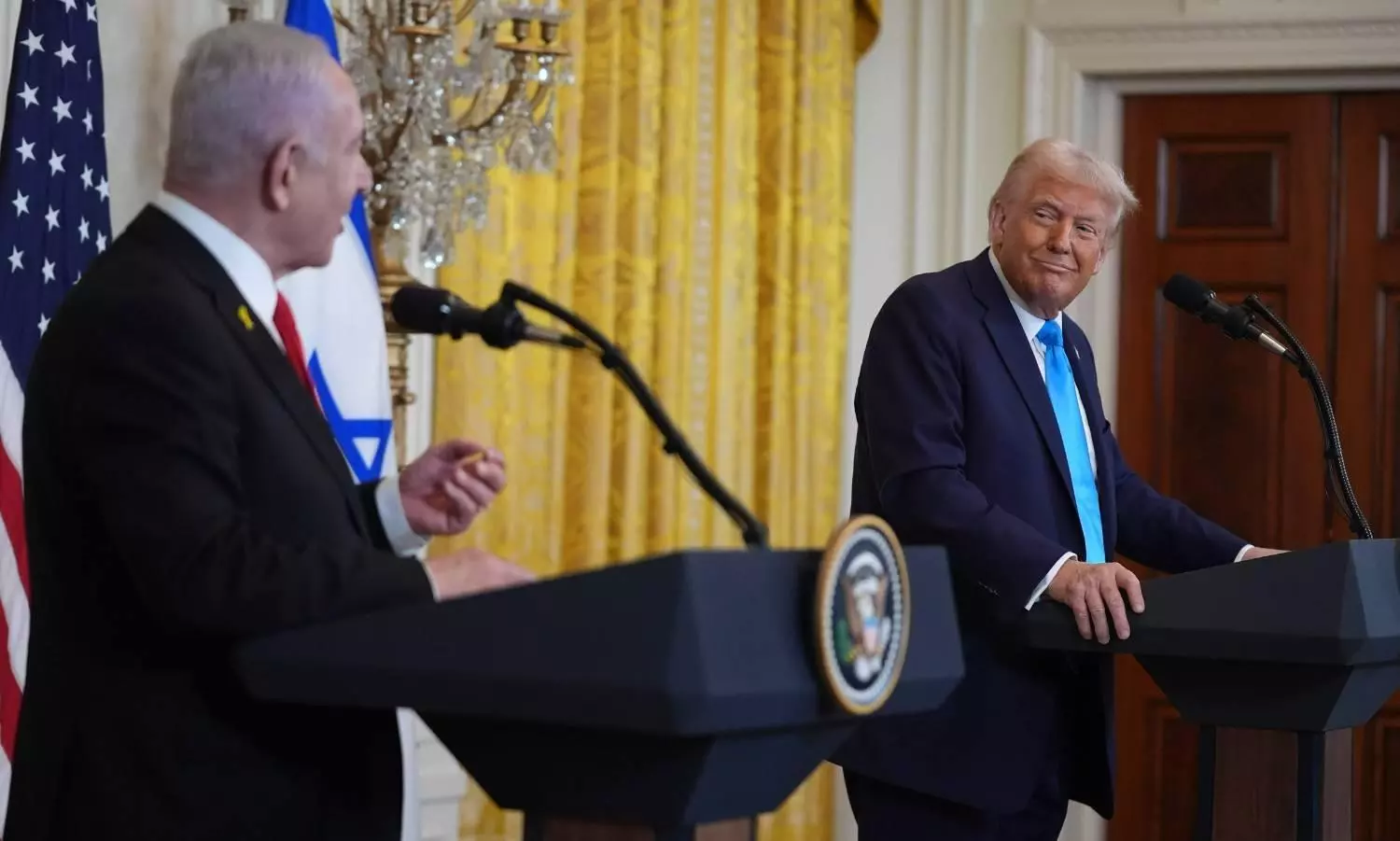
- Home
- India
- World
- Premium
- THE FEDERAL SPECIAL
- Analysis
- States
- Perspective
- Videos
- Sports
- Education
- Entertainment
- Elections
- Features
- Health
- Business
- Series
- In memoriam: Sheikh Mujibur Rahman
- Bishnoi's Men
- NEET TANGLE
- Economy Series
- Earth Day
- Kashmir’s Frozen Turbulence
- India@75
- The legend of Ramjanmabhoomi
- Liberalisation@30
- How to tame a dragon
- Celebrating biodiversity
- Farm Matters
- 50 days of solitude
- Bringing Migrants Home
- Budget 2020
- Jharkhand Votes
- The Federal Investigates
- The Federal Impact
- Vanishing Sand
- Gandhi @ 150
- Andhra Today
- Field report
- Operation Gulmarg
- Pandemic @1 Mn in India
- The Federal Year-End
- The Zero Year
- Science
- Brand studio
- Newsletter
- Elections 2024
- Events
- Home
- IndiaIndia
- World
- Analysis
- StatesStates
- PerspectivePerspective
- VideosVideos
- Sports
- Education
- Entertainment
- ElectionsElections
- Features
- Health
- BusinessBusiness
- Premium
- Loading...
Premium - Events

US President Donald Trump and Israeli Prime Minister Benjamin Netanyahu during a press conference at the White House earlier this year. AP Photo.
Though Donald Trump claims he has nothing to do with Israel’s missile strikes on Iran, circumstantially, it seems to be an attempt to soften and force Tehran to sign the nuclear deal.
Donald Trump is discovering that his dream of being remembered as a “peacemaker” is not the cakewalk he had probably expected when he took over as the president of the United States earlier this year for a second term.
His attempts at arm-twisting Ukraine President Volodymyr Zelenskyy into agreeing to a deal with Russian President Vladimir Putin have turned out to be an embarrassing flop, with the war intensifying between the two former Soviet provinces. Trump, during campaigning, had boasted he would end the war in one day, no less.
And now, Trump’s latest effort at pummelling Iran into signing a deal to end its nuclear programme has triggered a fierce conflict with Israel.
In between Russia-Ukraine and Iran-Israel, Trump claimed he “managed” to avert a full-fledged war between India and Pakistan over the Pahalgam terror attack, taking full credit for the ceasefire. But, this has been hotly contested by the Indian government which says it was a bilateral agreement between Islamabad and New Delhi that enabled de-escalation.
Trump's oneupmanship continues
Trump has displayed no qualms in projecting the US’s raw power to get the results he wants. In his view, which has been shown to be delusional at best or megalomaniacal at worst, the US can ride roughshod against any country, as seen in his imposition of reciprocal tariffs worldwide and ignoring his European allies. Trump’s dramatic walkout of the ongoing G7 meet is the latest exhibition of his unilateralism and oneupmanship.
Video Discussion: What is Trump's game plan?
The US president may well succeed in the short term, but peace achieved at gunpoint is bound to have its limitations.
There are striking similarities in the way Trump has attempted to bring about some sort of peace between Russia-Ukraine, and Iran- Israel. He publicly tried to bully Zelenskyy into agreeing to a deal with Putin at the White House, on live TV, witnessed by millions across the globe.
With Vance in company
In tandem with his deputy JD Vance, the maverick US president proclaimed Zelenskyy had no cards to play with. His line was that it would be in the best interests of Ukraine to sign a peace with Russia, even at the expense of losing substantial territory, and for Zelenskyy to forget his aspiration to get into the western military grouping, NATO.
And, what was Zelenskyy’s reaction? Ukraine simply carried out an astounding series of drone attacks against top-of-the-line military bases deep inside Putin’s Russia, effectively demolishing any talk of peace at least for now.
Also Read: West’s domination of the rest at the core of Israel’s attack on Iran
In the case of Iran, Trump issued a diktat to the Islamic regime in Tehran asking it to give up its nuclear ambitions and sign on the dotted line. There was no diplomatic finesse and the US president, overconfident that being a superpower he could force anyone to bend to his hubris.
'Trump's letter was deceptive'
In response to Trump’s invite for negotiations on the nuclear issue, Iran's Supreme Leader Ayatollah Ali Khamenei and President Masoud Pezeshkian initially rejected it on the grounds that the tone of Trump's letter was “deceptive and bullying”.
"Diplomatic negotiations have etiquette in that each side must recognise the other's interests and, more importantly, believe in fulfilling their commitments," reports said, quoting an Iranian spokesperson, adding "The US does not respect that and uses the possibility of negotiations as a propaganda and political tool."
Eventually, Iran relented and with Oman and Qatar as mediators, the talks began in Muscat. Five rounds into the negotiations, Trump figured out Iran was no pushover. Iran was unwilling to surrender its sovereignty by signing the one-sided agreement.
As if on cue, Israel launched its missile strike on Iran. It is no coincidence. Though Trump claimed he had nothing to do with Israel’s strike, circumstantially, it seems to be an attempt to soften Iran and force Tehran to sign the deal. With Israel threatening to ratchet up its strikes and Trump warning thousands of residents in Tehran to evacuate the capital, Iran, according to news agency reports, has indicated to Gulf mediators it is ready to sign a deal provided Israel stops its attack.
Also Read: Are Netanyahu's two war aims to destroy Iran's nuclear plan and regime change achievable?
What this implies is that Trump is acting in tandem with Israel using the tactic of “plausible deniability” where the US president can use the lack of direct evidence to claim he has nothing to do with Israel’s missile strikes on Iran.
For Trump, even the peace he keeps harping about is just a smokescreen. A die-hard Israel supporter, closer to the Jewish state than most other US presidents, Trump’s ultimate aim is to ensure that Iran does not emerge powerful enough to challenge Tel Aviv. It is not surprising that Trump has stated that the US will not allow Iran to be a nuclear power under any circumstances.
Iran's long-term plans
But Iran is not about to give in. Even if it does sign it would be under duress and for tactical reasons. In the medium term, Tehran may well open its nuclear programme to US inspectors. In the long run, however, it will continue with its work to achieve its nuclear goal.
In the past, Iran’s nuclear facilities have been sabotaged by the Stuxnext cyber program, suspected to be the handiwork of Israel. Its top nuclear scientists have been assassinated, again believed to be the handiwork of Mossad, the Israeli intelligence agency.
Trump in his first term, in 2018, walked out of the nuclear deal that Iran had signed with his predecessor Barack Obama. Iran, undeterred, revved up its uranium enrichment taking it to a point where it is now reportedly handshake distance from making a nuclear bomb.
Iran’s spirited response to Israel’s latest provocative strike on its nuclear facilities may well have taken both Netanyahu and Trump by surprise. The Islamic regime’s reaction in counter-attacking Israel this time has been far more intense than when its facilities were struck by Israel last October. But it is hampered by limitations. Iran is much weaker now than earlier, having lost all its allies in the region to the US-Israel axis.
For the Khamenei dispensation in Tehran, its survival may well depend on how it deals with the current crisis. For Trump, a veritable bulldozer in the garb of a “peacemaker”, the timing seems favourable. Will Iran spring a nasty surprise, or is it podium time for the US President? We’ll know soon.


